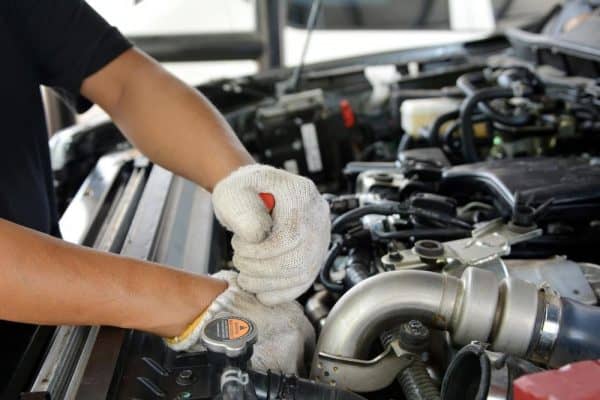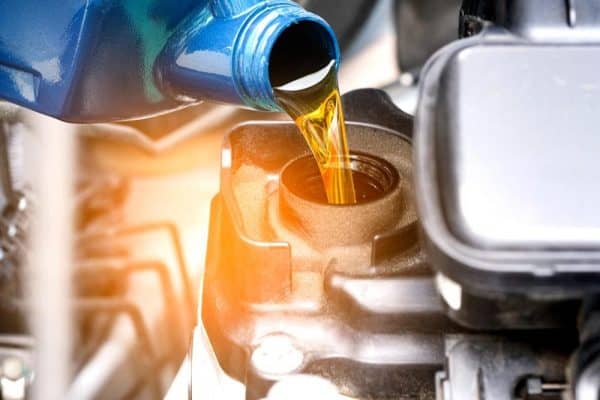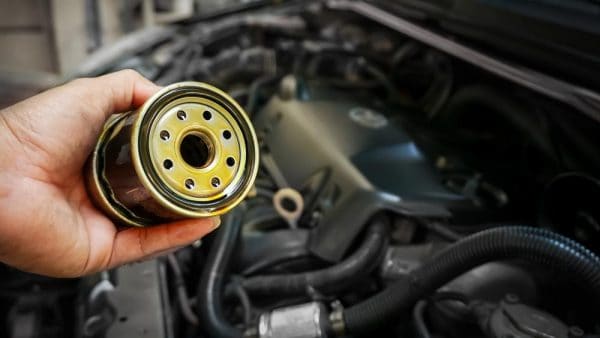
Source: arhendrix/Shutterstock.com
Owning a diesel turbocharged engine comes with a lot of responsibility. These engines are much larger and more powerful than gasoline-powered alternatives. The latest diesel technology is designed to reduce NOx emissions, improve fuel efficiency, and reduce wear and tear due to extreme heat. But that doesn’t mean these machines maintain themselves. Keep these driving and maintenance tips in mind to make the most of your diesel engine.
On Starting Up
It may be tempting to hit the gas as soon as you start the engine, but this can damage some of the internal components, especially on a cold day. You need to let the engine idle for a few minutes before you charge out of the garage to let the engine reach the proper temperature. The oil needs time to move through the various sections of the engine to keep everything properly lubricated. If you hit the gas too soon, the cylinders, injectors and other crucial components will be forced to operate without oil.
This becomes even more important in the winter. Do your best to keep your vehicle out of the cold by storing it in the garage or temperature-controlled environment. Use block heaters and glow plugs to keep the engine from freezing up. You can also use oil additives to maximize lubrication in the winter. When in doubt, spend at least five minutes idling on cold days before hitting the gas.
Engine Cooling
Temperatures inside the combustion chamber often exceed 1000 degrees Fahrenheit. All that excess heat can do a number on the inner workings of your engine. That’s why the cooling system is so important. Every diesel engine uses coolant to lower the temperature of exhaust gases before they re-enter the combustion chamber.
Use high quality EGR coolers to keep your engine from overheating. EGR stands for exhaust gas recirculation. The system runs coolant through a series of tubes adjacent to the exhaust gas mixture. The heat passes through the walls to lower the temperature of the gas. It then diverts excess heat away from the combustion chamber.
There are lots of different coolants available on the market today, but it’s always best to use whatever the original equipment manufacturer recommends. Mixing different types and brands of coolants can damage the cooling system. This may lead to a chemical reaction, making the entire process less efficient. That means more heat and stress on your engine.

Source: Seasontime/Shutterstock.com
Fuel Additives
You should always use a fuel additive when fueling up your vehicle. These products help the engine run more smoothly and efficiently by changing the viscosity and temperature at which fuel burns. The additives increase engine power by helping you make the most of your fuel. They also increase lubrication to reduce wear and tear on the internal components. Additives can also help remove debris and residue from inside the combustion chamber. They reduce clogging and buildup by producing an even spraying pattern.
It’s best to use an additive the demulsifies water to reduce the load on your engine. Some products will burn out the water through the injections system, but this only makes the system work harder than it needs to. The engine will try to separate the water mechanically, but it helps to remove excess moisture ahead of time.
Additives become even more essential in the winter. These products stop fuel from gelling in extreme temperatures, so it doesn’t clog your diesel engine.
There is a danger of adding too much of a good thing. Avoid over treating your fuel or you could clog certain filters or decrease engine performance. Always monitor how your fuel reacts to different additives. Use specific ratios to make sure you’re using just the right amount.
Filter Changes
You should always keep up with basic maintenance tasks like changing the oil according to the manufacturer’s guidelines. Oil is the lifeblood that keeps your engine running. It provides lubrication to internal components to reduce wear and tear. Not using enough could spell trouble for your engine. Don’t forget to change the fuel filters as well to prevent clogging.

Source: Oasishifi/Shutterstock.com
Inspect the Turbo
Many diesel drivers fail to maintain their turbochargers, but these systems require a lot of care and attention. Most diesels use variable geometry turbos instead of the older fixed geometry models. The VGT actuator moves the sliding sleeve inside the turbocharger to adjust the amount of exhaust gases moving the turbine wheel, which either increases or decreases turbo boost based on operating conditions. This model leads to improved engine performance and fuel economy as well as enhanced engine braking response times.
Inspect the actuator to make sure it’s working properly. Check the axial and radial movement of the turbocharger wheels and shaft. You may also need to calibrate the turbocharge actuator according to the turbocharger. Find new 6.0 VGT actuators if the sleeve starts sticking together. If the actuator fails, your engine will likely be the next to go.Diesel turbo engines are complex pieces of machinery. Watch out for warning signs such as turbocharger failure, blue smoke coming out of the exhaust, rough idling and other red flags that mean something is wrong. Replace diesel parts as needed to keep your engine running at peak efficiency.
 Gearfuse Technology, Science, Culture & More
Gearfuse Technology, Science, Culture & More


